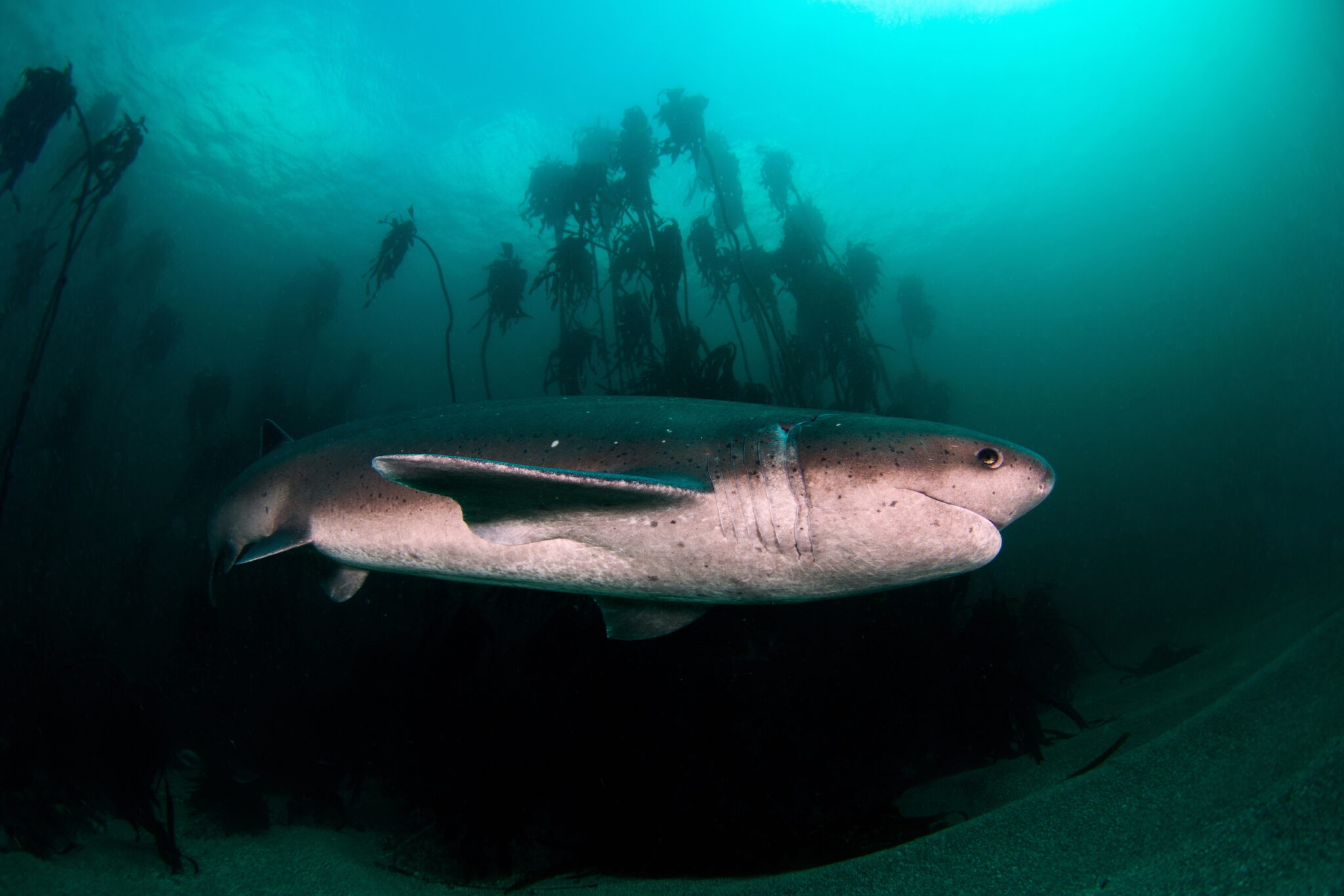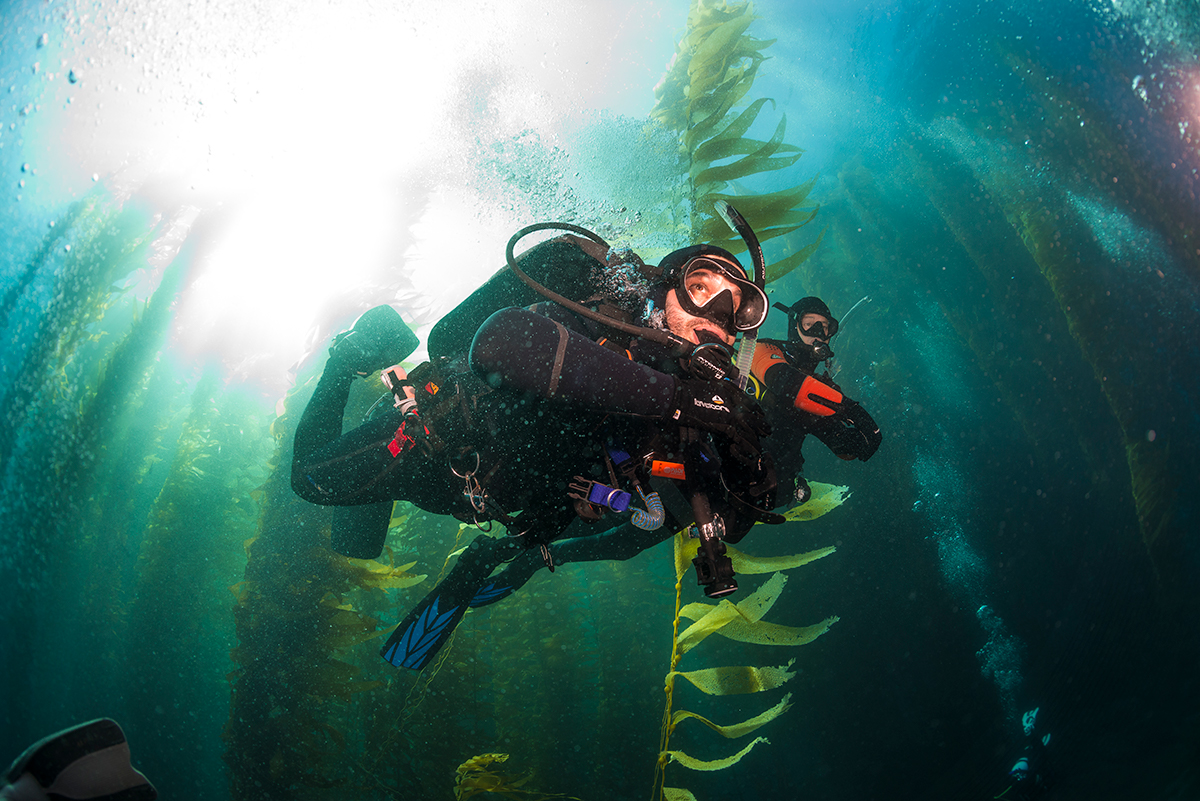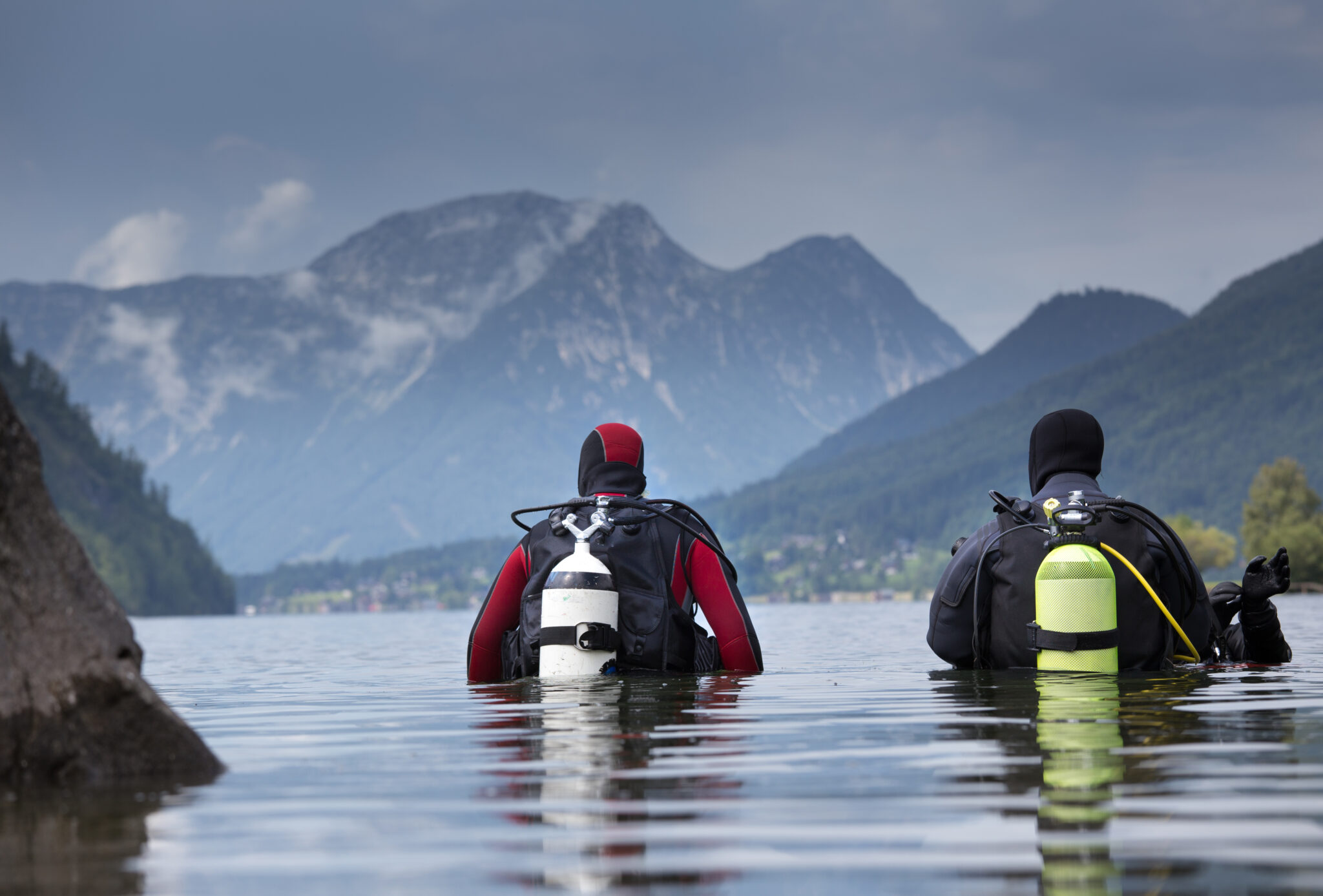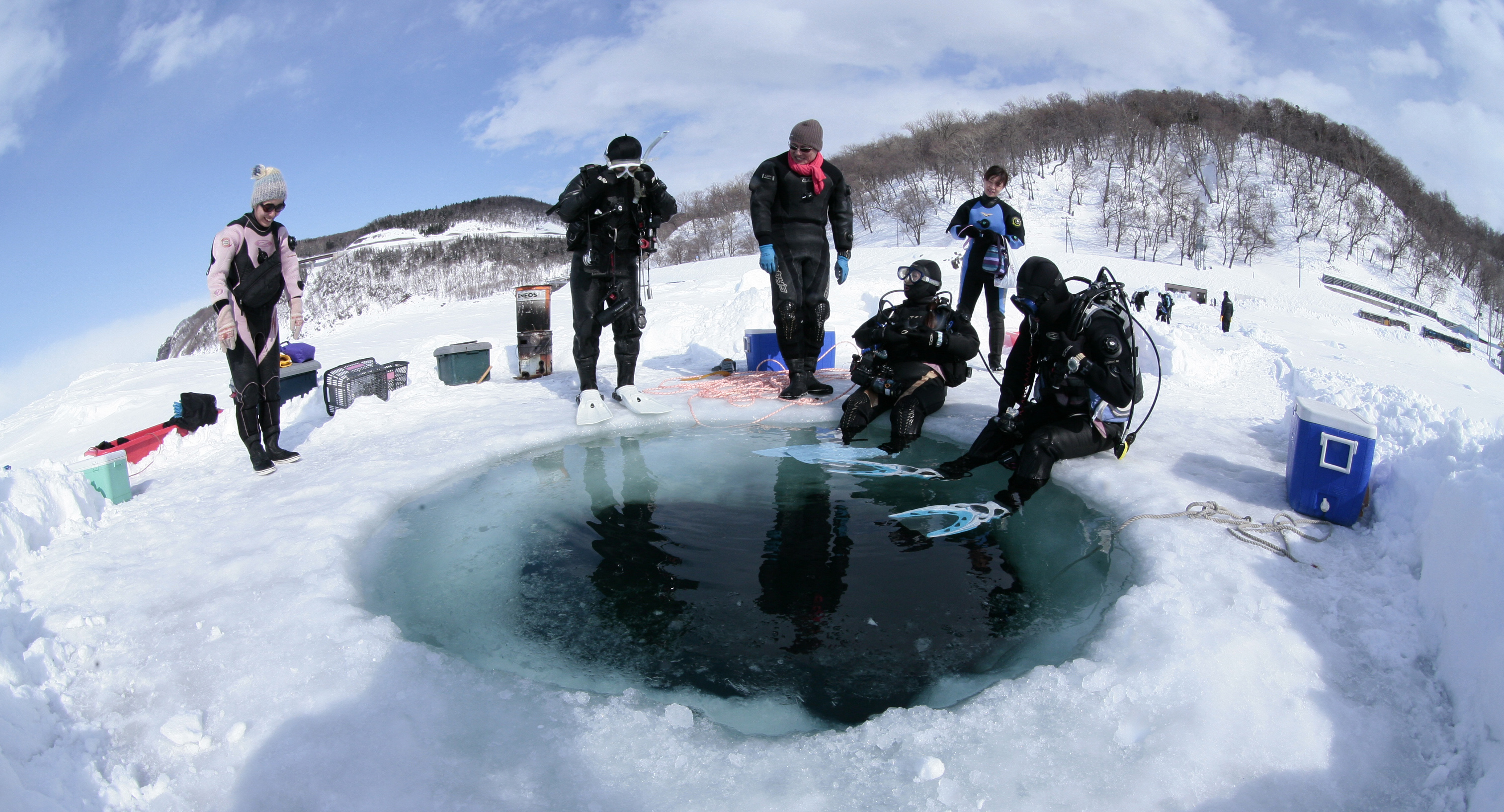When you think of diving, you might think of coral reefs, diving off faraway islands in your bikini or board shorts, and drinking coconuts during a surface interval. Indeed, for many people, that’s the only diving they will ever do. But they’re missing out on a world of incredible dive sites, vibrant ecosystems, and abundant marine life only accessible by diving in colder waters. If you’re ready to take a scuba cold plunge and to dip your face in ice water, here are some of the benefits of cold water diving and how to grow to love it.
First, let’s address the elephant in the room. Why would anyone want to dive in cold water when you can have guaranteed warm waters and sunshine? If you’ve never tried it and don’t have friends who are fans of cold water, the idea might seem a bit nuts. But cold water diving has many benefits that might just make it your new favorite thing.
Here are just a few of them.

Cold water diving does come with some challenges. In addition to the lower temperatures, the cold can also affect visibility. Weather patterns can also be unpredictable in colder regions. It might come with a learning curve, but with the proper preparation and mindset, you’ll soon be able to conquer these challenges and appreciate the unique beauty of cold-water diving.

Now you know the benefits of cold water diving, here are some tips to help you love it even more.
The key to enjoying cold water diving is staying warm and comfortable. This means investing in quality wetsuits or drysuits, gloves, hoods, and boots designed for colder temperatures. Don’t skimp on your gear – it can make all the difference in your comfort level underwater.
Cold water diving can require a different set of equipment, skills, and techniques than warm water diving. Whether you’re venturing into ice diving or simply wearing a drysuit for the first time, it’s essential to get proper training. This will ensure your safety and comfort.
As with any activity, finding a supportive community can make all the difference. Connecting with other cold water divers means you always have a buddy and plenty of chances to swap tips and stories. Join a local dive club or reach out to other cold-water divers on social media.

Dive planning is a must no matter where you’re diving. But when you’re cold water diving, make sure you plan for before and after the dive as well. This includes staying up to date with the weather forecast, bundling up before and after your dive to help you stay cozy, and preparing hot drinks, soup or snacks for a quick warm-up once you’re back on dry land. Keep a closer eye on your air and dive time, too, as colder temperatures can affect your air consumption.
As mentioned above, cold water diving can open up a whole new world of local dive sites all year round. That could be lakes, quarries, or ocean sites close to home. By embracing local diving, you won’t have to wait for your next tropical holiday to go diving and can continue to improve your skills all year round. Become an ambassador for the unique beauty of your local dive spots.

With a little bit of research, you’ll soon find plenty of incredible cold water dive sites worldwide. From the Sardine Run in South Africa to diving between two continental plates in the Silfra Fissure, the possibilities are endless. Create a cold water bucket list and start checking off those incredible dives.
When you’re cold water diving, the flora and fauna can be unique and different from what you’re used to. From knowing how to spot a giant Pacific octopus in rock crevices to finding critters hidden in the seagrass, knowing what to expect will help you appreciate and enjoy the diverse cold-water marine life even more.
If you’ve only ever been diving in a 3mm shorty, it might not be the best idea to dive head first into ice diving in a blizzard in near-zero temperatures. Gradually build up your comfort level. Start with dives in slightly colder temperatures on sunny summer days, if possible, and slowly work your way up. This will help you acclimate to the lower temperatures, get used to your new gear in mild conditions, and build your confidence in cold water to make the experience more enjoyable.

Don’t let cold water deter you from experiencing some of the most incredible dive sites on our planet. Although cold water diving may seem daunting at first, with the right training, gear, and mindset, it can soon become your new favorite type of diving.
So gear up, take a cold plunge, and discover the beauty of diving in colder waters. You might just find yourself completely hooked!
Share This